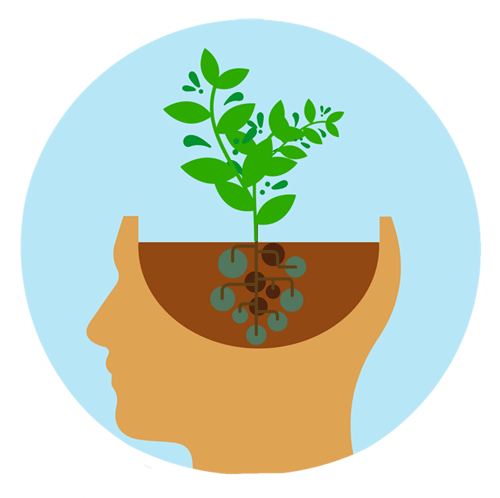
FUN WITH MATHS
Head of Pre-primary
Mrs G Haux
We welcome you to 20 – 21, … and we encourage you to keep counting with some number fun!
Mathematics is often perceived to be a threat to parents and learners alike, but it need not be! As with many things, learning maths can be likened to a building process. The best way to lay a good foundation is by sharing in some fun number activities during the run of a normal day with your pre-school child.
Here are some ideas:
- Use rhymes and songs to familiarise your child with the number names and add showing your fingers as you sing to show the particular number relates to that many fingers. For example: “10 little monkeys jumping on a bed”.
- Incorporate numbers into your children’s daily chores. As they set the table instruct them to place one fork and two spoons at each plate, or let them count the apples in the bowl, or the toys as you tidy up.
- Create a drawing or packing game by writing down a number and allowing your child to draw or pack the same number of lids or toys. Or if you are outdoors ask for 3 flowers or 2 stones.
- Driving in a vehicle, you can point out numbers on advertisement boards, road signs or vehicle number plates. This helps to develop number recognition.
- Basic connect-the-dots pictures help children to learn how to order numbers correctly. You can create your own very basic ones on a chalkboard.
- Use any opportunity to count; in the bath tub or when cutting nails: count fingers and toes, etc.
- Make flashcards with dots or pictures on, and later number symbols, and play games with them.
The list can go on and on, but the point is: make your child’s introduction to mathematics as natural as possible and loads of FUN!
Source: https://parenting.firstcry.com/articles/when-and-how-to-teach-numbers-to-kindergarten/

THE GOLIATHS
Head of Foundation Phase
Mrs L Stegen
Most of us look forward to the beginning of a new year. For children it means new books, pencils, bags etc. Usually, every household buzzes with excitement and expectation. But with new beginnings, new challenges are a reality, which can bring fear and anxiety. I would like to call these giants Goliaths.
One evening some children wanted to hear a story. They brought a book and showed me which story they wanted me read to them: a favourite, David and Goliath! The title of the story was ‘God will bring down your giants.’
As I read the story, I had to wonder about our little ones. Is there a giant Goliath in their lives? In all this excitement, some may have enormous giants standing in front of them.
Who will be my teacher? Will my teacher understand that I’m struggling with Mathematics? I cannot read as fluently as the others in my class. I’m not as good as so-and-so at sport. Giants come in various shapes and sizes.
As adults we have the responsibility to teach them how to fight giants. We should be observant of the agony a little one can go through if they are not taught how to overcome their fears.
Observe and discern. Behind the unusual behaviour of a child, or even behind that ‘smile’ there could be a lurking Goliath, who threatens and frightens the child day and night. We can teach our little ones David’s secret – trust in the Lord and do your part.
“The Lord saved me from a lion and a bear. He will also save me from this Philistine.” Saul said to David, “Go, and may the Lord be with you.”

A GROWTH MINDSET
Head of Intermediate Phase
Mrs E Gouws
Growth is a wonderfully positive word. It conjures up images of health and well-being. A growth mindset is an equally positive word that has been identified by teachthought.com as the most popular trend in education for 2021.
A growth mindset is the tendency to believe that you can grow and change, that your most basic abilities can be developed through dedication and hard work. “This view creates a love of learning and a resilience that is essential for great accomplishment.” (Dweck, 2015)
A fixed mindset, on the other hand, is when you believe that your intelligence or talent are fixed traits and you “believe that talent alone creates success-without effort.” (Dweck, 2015)
If some are born smarter than others, do you have a chance? People are born genetically unique. A growth mindset enables a person to believe that s/he can develop, match and even outshine the natural talent of others. Teachers play a crucial role in developing a growth mindset. They shape a learner’s confidence and attitude to learning and school through productive and continuous feedback.
Dweck writes, “In the fixed mindset, everything is about the outcome. If you fail—or if you are not the best—it has all been wasted. The growth mindset allows people to value what they are doing regardless of the outcome. They are tackling problems, charting new courses, working on important issues. Maybe they have not found the cure for cancer, but the search was deeply meaningful,” (Dweck, 2015).
Teachthought.com suggests 25 simple ways to develop a growth mindset:
1. Acknowledge and embrace imperfections. Hiding from your weaknesses means you will never overcome them.
2. View challenges as opportunities.
3. Try different learning tactics.
4. Follow the research on brain plasticity. The brain is not fixed; the mind should not be either.
5. Replace the word “failing” with the word “learning.” When you make a mistake or fall short of a goal, you have not failed, you have learned.
6. Stop seeking approval.
7. Value the process over the end result.
8. Cultivate a sense of purpose. Dweck’s research also showed that students with a growth mindset had a greater sense of purpose. Keep the big picture in mind.
9. Celebrate growth with others.
10. Emphasize growth over speed. Learning fast is not the same as learning well and learning well sometimes requires allowing time for mistakes.
11. Reward actions, not traits. Tell students when they are doing something smart, not just being smart.
12. Redefine “genius.” The myth’s been busted: genius requires hard work, not talent alone.
13. Portray criticism as positive.
14. Disassociate improvement from failure. Stop assuming that “room for improvement” translates into failure.
15. Provide regular opportunities for reflection. Let students reflect on their learning at least once a day.
16. Place effort before talent. Hard work should always be rewarded before inherent skill.
17. Highlight the relationship between learning and “brain training.” The brain is like a muscle that needs to be worked out, just like the body.
18. Cultivate grit. Students with that extra bit of determination will be more likely to seek approval from themselves rather than others.
19. Abandon the image. You will not achieve the image if you are not ready for the work.
20. Use the word “yet.” Whenever you see students struggling with a task, just tell them they have not mastered it yet.
21. Learn from other people’s mistakes.
22. Make a new goal for every goal accomplished. You’ll never be done learning. Growth-minded people know how to constantly create new goals to keep themselves stimulated.
23. Take risks in the company of others. Stop trying to save face all the time. It will make it easier to take risks in the future.
24. Think realistically about time and effort. It takes time to learn. Do not expect to master every topic under the sun in one sitting.
25. Take ownership over your attitude. Once you develop a growth mindset, own it.
Here’s to a more positive learning experience in 2021, in spite of the COVID-19 pandemic with all its mental, emotional, social and educational challenges.
For more information on this topic, refer to the sources below:
https://www.renaissance.com/edwords/growth-mindset/
https://www.teachthought.com/the-future-of-learning

REAL EDUCATION
Head of Senior Phase
Mr D van Straten
At the beginning of the 2021 academic year, it would be good to start off by looking at the true meaning of education in the lives of our children. In fact, it is our responsibility.
Education has many benefits. It is often put forward as the means to help children gain knowledge, which enables them to succeed in a chosen career, which enables them to meet their needs and wants.
Considering this and the many other academic benefits of education, there is the ever-present danger that our emphasis in education becomes the mere instillment of knowledge: my children must achieve so that they can be successful in life.
Although a child must be taught knowledge, and although there is a syllabus that must be covered, this should never be the main objective in Christian education. In fact, education should be much more meaningful in its delivery: it prepares a child to fulfil a value-adding role within a community as a responsible citizen of a country. It also builds character. Above all, it is an instrument that can effectively be used to instil those Bible-based moral values we want our children to attain to: perseverance, being considerate, helpful, full of empathy.
A second risk in emphasising the academic gains of education, is the fact that academic drive becomes a goal in itself. In the process, individual ability and character is ignored and our children are conformed to fitting into a box: your peers can do it, so must you. Instead, through education we should strive to celebrate the individuality of each child and to help the individual fulfil God’s purpose for their life. In this coming year, we wish to fulfil the true meaning of education.

DO IT, DON’T QUIT
Head of FET Phase
Mrs J Sibeko
Someone once said: “You cannot go through life without going through hardship, pain, failures, or challenges, but, you also cannot turn your life to point in the right direction unless you have a constant supply of positive influences as you can easily find through a daily inspirational or motivational quote.” How sad it is if someone looks to a “daily inspirational or motivational quote” for encouragement when the store of Scripture is there.
I would like to adapt it: “You cannot go through life without going through hardship, pain, failures or challenges, but you also cannot turn your life to point in the right direction unless God helps you.”
2020 was a challenging year for everybody. There were unprecedented challenges for learners, their families, teachers and educational leaders all over the world. But despite countless obstacles, teachers all over the country persevered and achieved remarkable successes.
James M. Kouzes writes (in Turning Adversity into Opportunity) that “Challenge is the defining context for leadership… dealing with challenge, with adversity, with turbulence, and with unexpected difficulties and hardships.” Let us then persevere and not give up even during this pandemic.
Finally, some truly inspirational and encouraging words from Scripture: “Let us not grow weary of doing good, for in due season we will reap, if we do not give up.”

COVID OR NO COVID
Head of Academics
Mrs A du Preez
As usual, at the beginning of a new school year, shall we once again try to outline the processes and procedures planned? This time, however, we also need to underline the fact that we plan to teach and learn online when not offline, and offline when not online. And hopefully everybody will be able to fall in line … neatly on the stipulated social distancing dots!
The truth is, we missed our learners during our longest holiday ever. We are counting the hours until we can, once again, stand before them in the classroom. We will see their eyes (above the masks) and we will hear their voices (behind the masks), and our hearts will be bouncing with joy: they are with us again, back at school.
With our heavenly Father we will go forward. By His grace we have braved one of these COVID waves already and have passed the summit of the second one. No matter whether we still approach a third (even a fourth?), the good thing is, we have the valleys in between to look forward to. Why? Because it is then that we can see the children and experience eye-to-eye offline time with them!
May we all stay on the Lord’s wave length at all times – COVID or no COVID.
